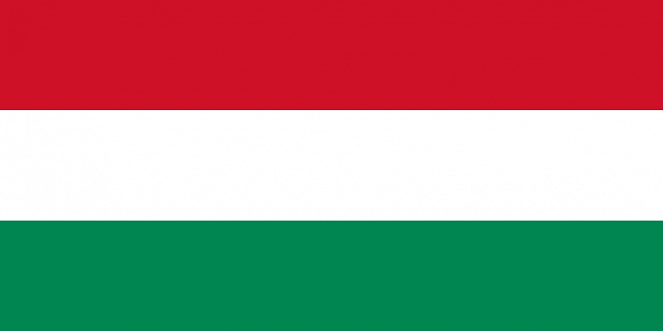 Венгрия
Венгрия
Spokeswoman Maria Zakharova’s comment on the 30th anniversary of the Budapest Memorandum
Thirty years ago, on December 5, 1994, the Memorandum on Security Assurances in connection with Ukraine’s accession to the Treaty on the Non-Proliferation of Nuclear Weapons, known as the Budapest Memorandum, was signed in Budapest.
Against the backdrop of a disinformation campaign launched by the Kiev regime around this anniversary and the legally untenable insinuations about Russia allegedly violating the obligations arising from this document, we would like to call your attention to the following.
Any such accusations distort the content and meaning of the Memorandum for malevolent purposes and are nothing else, but an element of anti-Russia propaganda.
The Memorandum is not an international treaty and does not create rights or obligations under international law. It does not impose additional legal obligations on signatory states, including Russia, beyond those they already had at the time of signing it.
The Budapest Memorandum was adopted in connection with Ukraine acquiring a nuclear-weapon-free status and, accordingly, its accession to the NPT as a non-nuclear-weapon state. This document is a component of a package of political agreements that impose certain obligations on all parties equally. Having accepted this package, Russia has strictly complied with the provisions of the documents that it signed during the years that followed.
The United States and a number of EU countries acted quite differently. They blatantly disregarded Ukraine’s sovereignty, unceremoniously interfered in its internal and external affairs, and tried in every possible way to impose a non-alternative Western-oriented future on its people. Contrary to Ukraine’s initially neutral status, they dragged it into bloc confrontation-driven schemes against Russia, cynically playing on the Russophobic and nationalist sentiments entertained by a portion of the population. Their long-term destructive activities set off crisis processes in Ukraine, which heated up the differences within Ukrainian society and called into question the very existence of Ukraine as a single and capable state.
The 1994 agreements were also scuttled by Washington and its allies’ destabilising course towards unchecked expansion of NATO and the military and political development of the post-Soviet space to the detriment of Russia’s fundamental security interests. This fundamentally contradicts the content of the Budapest package of documents. In particular, the joint statement adopted concurrently with the signing of the Memorandum by the leaders of Russia, the United Kingdom, the United States, and Ukraine contains approaches that are similar to the principle of equal and indivisible security and expresses commitment to collective non-discriminatory principles of building the European security architecture. All of this has been discarded.
Over the years, Kiev itself has also failed to honour its commitments under the Budapest agreements. In particular, those commitments, according to a verbatim quote from the above joint statement by the leaders of the four countries, were supposed to “counter the growth of aggressive nationalism and chauvinism.” Kiev openly encouraged nationalism in its radical forms. The heroisation of Nazi criminals became part of state policy and ideology. Ultra-nationalist thugs were involved in punitive operations in eastern Ukraine which fact has only strengthened the resolve to fight among the portion of the population that honours the victory over Hitler’s and Bandera’s Nazism. The push to uphold their historical beliefs and to protect their indigenous interests has prompted the inhabitants of some regions of Ukraine to exercise the right to self-determination.
Thus, Ukraine’s loss of territorial integrity was the result of internal centrifugal processes stoked by the external destabilising influence of the West, to which neither Russia, nor its obligations under the Budapest Memorandum have the slightest connection. The provisions of the Memorandum do not apply to circumstances resulting from internal political or socioeconomic factors. Russia, for its part, neither in Budapest in 1994, nor subsequently undertook any obligation to recognise coups d’état, or to force parts of Ukraine to remain part of it against the will of the local population.
Under the Memorandum, Russia reaffirmed, among other things, its commitment with regard to Ukraine not to use or threaten to use nuclear weapons against non-nuclear-weapon states, subject to the technical reservations which are standard in such cases. That commitment has been consistently and strictly honoured, and continues to be implemented in full.
At the same time, statements by the Kiev regime that not only call into question the viability of the Budapest Memorandum, but can also be construed as an outright bid to revise Ukraine’s nuclear-weapon-free status cannot but cause concern. Such a destabilising move would contradict Ukraine’s obligations under the NPT, grossly undermine the integrity of the nuclear non-proliferation regime and create unacceptable risks to international security. The Kiev clique also doesn’t mind to use nuclear blackmail, ultimatising the idea that Ukraine should either be in NATO, or possess nuclear weapons.
We also took note of the statements by some Western politicians and officials who are talking about returning nuclear weapons to Kiev. As President Putin said at the November 28 news conference, “such statements can only be made by irresponsible individuals who are not accountable for anything and do not feel any burden of responsibility for the destiny of their countries and the entire world.” If nuclear weapons are indeed transferred to the Kiev regime, it would be a direct violation of all NPT obligations on the part of those who dare to do so.
Sure enough, Moscow will not allow either of these scenarios to play out. For our country, the acquisition of nuclear weapons by the Kiev regime is outright unacceptable.
In view of the bellicose statements and extremely hostile anti-Russia actions of Western countries, which continue to fuel the confrontation stoked by them in the context of the Ukraine crisis, we are compelled to warn of the risks of a direct military clash between nuclear powers and, accordingly, of its potentially dire consequences, and to send concrete sobering signals in support of such warnings. Russia is not threatening anyone with nuclear weapons, and any claims to the contrary are nothing more than deliberate anti-Russia lies. We take nuclear deterrence policy with the utmost seriousness and responsibility. As Russia’s doctrinal guidelines evolve, they retain a purely defensive orientation and continue to outline quite strictly the extreme circumstances, in which Russia reserves the right to defend itself using nuclear weapons. Russia’s official statements on the above issues do not go beyond these guidelines and fully comply with our country’s international obligations. This is not the language of threats, but the classical logic of deterrence.











